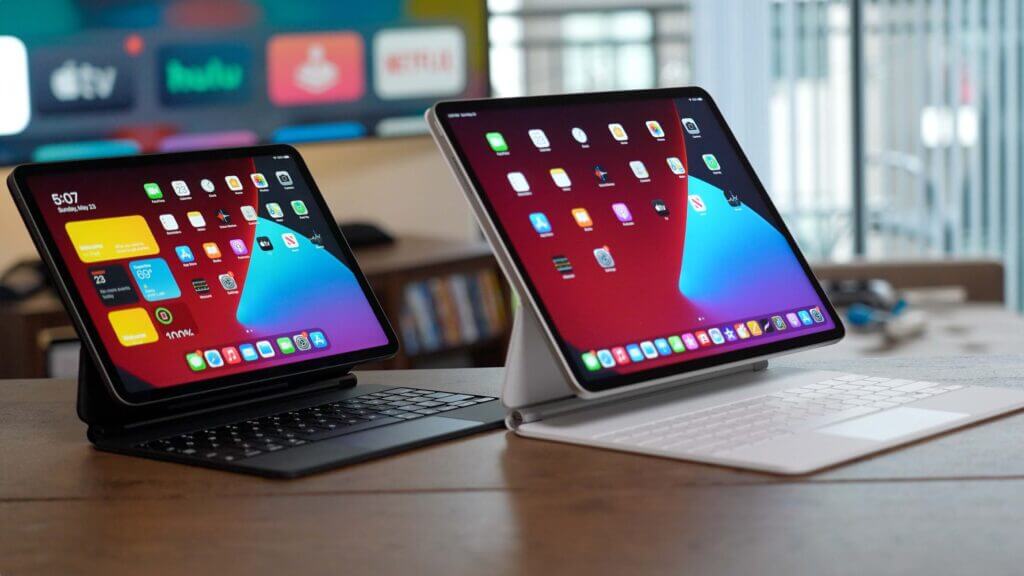As a manufacturer of laptops or tablets, it’s important to work with SAR testing experts to have your devices approved by the FCC for SAR compliance. What makes this so important? The complexity of laptop and tablet SAR testing considerations.
There are a variety of different approaches that can be used to prove compliance and it’s crucial to choose the correct approach to avoid additional SAR testing, manufacturing delays, or failure to prove compliance. Keep in mind that this article only scratches the surface of laptop and tablet SAR testing considerations; full regulations and requirements for proving compliance are much more exhaustive and complex.
Laptop and Tablet SAR Testing Considerations
The SAR testing requirements and procedures outlined by the FCC Office of Engineering and Technology (OET) only apply to laptops and tablets when the overall diagonal dimension of the keyboard and/or display section is greater than 20 cm.
In addition to this, laptop and tablet SAR testing considerations for transmitters and antennas that operate in both standalone and simultaneous transmission configurations are applied jointly with test provisions outlined in KDB publication 447498 D01. Other KDB publications specified as “published RF exposure KDB procedures” can also be found in this same KDB publication. These procedures are required to be used for testing different wireless devices, depending on what is applicable.
The following laptop and tablet SAR testing considerations are only applicable for transmitters and modules in laptop or tablet computers operating within the 698 MHz to 6GHz bands. These procedures also lay out the structure for implementing all documentation and disclosure requirements described in KDB Publication 447498 D01. This publication refers to the supply chain, which includes grantees of individual transmitters, host manufacturers, and OEM/ODM integrators, as well as end-users.


Device Host Platforms
Laptop and tablet platforms are the two host platforms that are considered when including transmitter modules into host devices. The laptop platform includes notebook and netbook computers, while the tablet platform includes tablets as well as specific laptop computer configurations that can operate in tablet mode. This encompasses “2-in-1” tablets as well as tablets with detachable keyboards.
In some cases, test configurations and minimum test separation distances applicable to the tablet platform will be more conservative than what is required for the laptop platform. If this is the case, transmitters approved for the tablet platform may also be used in the laptop platform.
General Laptop and Tablet SAR Test Considerations
When it comes to laptop and tablet SAR testing considerations, keep in mind that some host computers incorporate multiple transmitters. When this is the case, the combined RF exposure will depend on the antenna structure in each host application. The RF exposure conditions assessed for individual transmitter modules need to conservative enough to allow the transmitters to be incorporated into a variety of host configurations for standalone and simultaneous transmission operations without requiring additional equipment approval.
The RF exposure conditions for laptops are typically linked to the antennas installed in the laptop’s display screen and keyboard compartment. For tablets, RF exposure conditions are linked to the entire tablet. If the tablet includes a non-detachable keyboard it is considered an intrinsic part of the tablet in SAR testing. While normally applied to non-detachable keyboards, these procedures may be expanded to include detachable wireless keyboards as well as docking stations that operate next to the user.
Transmitters are expected to have varying operating characteristics and RF exposure conditions depending on their host configurations. For example, modular transmitters are typically supplied by different vendors, so each transmitter supports a different kind of wireless technology. Additionally, host manufacturers may decide to work with many different suppliers for a certain type of transmitter, with multiple design variations, which will require different antennas or varying antennas configurations in different host models.
Regardless of how they operate, all transmitters are required to be evaluated independently for compliance with FCC SAR regulations in laptop and tablet SAR testing considerations.
Modular Approach
When discussing laptop and tablet SAR testing considerations, there are a few different approaches that can be used to test these devices for compliance.
Some transmitters may be certified as modules, and in these cases, they may be integrated into qualified laptop and tablet hosts without the need for further SAR testing using the modular approach. When this approach is practiced, host manufacturers and OEM integrators will be required to follow all installation requirements and operating restrictions when incorporating transmitters in host devices.
Transmitter manufacturers will also be required to provide the FCC with the appropriate instructions for the module to confirm compliance with all integration and use configurations. The manufacturer must also establish that integrators understand the SAR compliance requirements and may even need to provide further guidance to fulfill grantee responsibilities.
Integrators also need to be thoroughly informed about their obligations and are required to verify that any problems or concerns regarding transmitters have been resolved with the manufacturer. In addition to this, disclosure requirements, such as sample user operating instructions, must be comprehensively documented for the entire transmitter supply chain and submitted for device approval.
SAR procedures described in KDB Publication 447498 D01 are used to decide whether a modular transmitter can be approved to be used in single and multiple host platforms, and with or without host platform restrictions.


Dedicated Host Approach
Another approach that may be used in laptop and tablet SAR testing considerations is the dedicated host approach. The manufacturer may opt to use this method in order to apply for device approval for the host device and all transmitters under one FCC ID.
When this approach is used, the host device grantee will be entirely responsible for the installation, operation, and disclosure requirements of all transmitters in the host laptop or tablet. Transmitter SAR compliance must also be addressed by the host’s manufacturer or grantee, whether transmissions are standalone or simultaneous with regard to transmitter and antenna installation requirements and operating configurations of the host device.
SAR compliance of simultaneous transmission caused by external user-accessible peripheral transmitters that plug into external card slots and interface connections are also required to be addressed.
Mixed Approach
The third approach of laptop and tablet SAR testing considerations is the mixed approach. This approach may be used by different responsible parties and applies the requirements of the modular and dedicated host approaches. This simplifies the SAR testing and approval process for incorporating transmitters in qualified host devices.
RF Exposure Lab is Here to Help!
A lot goes into laptop and tablet SAR testing considerations. Aside from the process of testing devices for RF exposure, determining which approach should be used and implementing it is complicated in and of itself. Failing to work with SAR testing experts like RF Exposure Lab can potentially lead to devices failing to be approved. Working with an experienced SAR testing lab like RF Exposure Lab will help you successfully navigate the maze of SAR testing regulations and requirements.
At RF Exposure Lab, we go above and beyond to ensure our clients understand what is required for their device to prove SAR compliance. Thanks to our unique expertise and commitment to our clients, we can guarantee accurate testing and results.
We offer testing services for a variety of wireless devices such as cell phones, wireless modems, laptops, tablets, medical products, and much more. If you’re looking for SAR testing help provided with speed, accuracy, expertise, and integrity, contact us to get a quote for our services.
